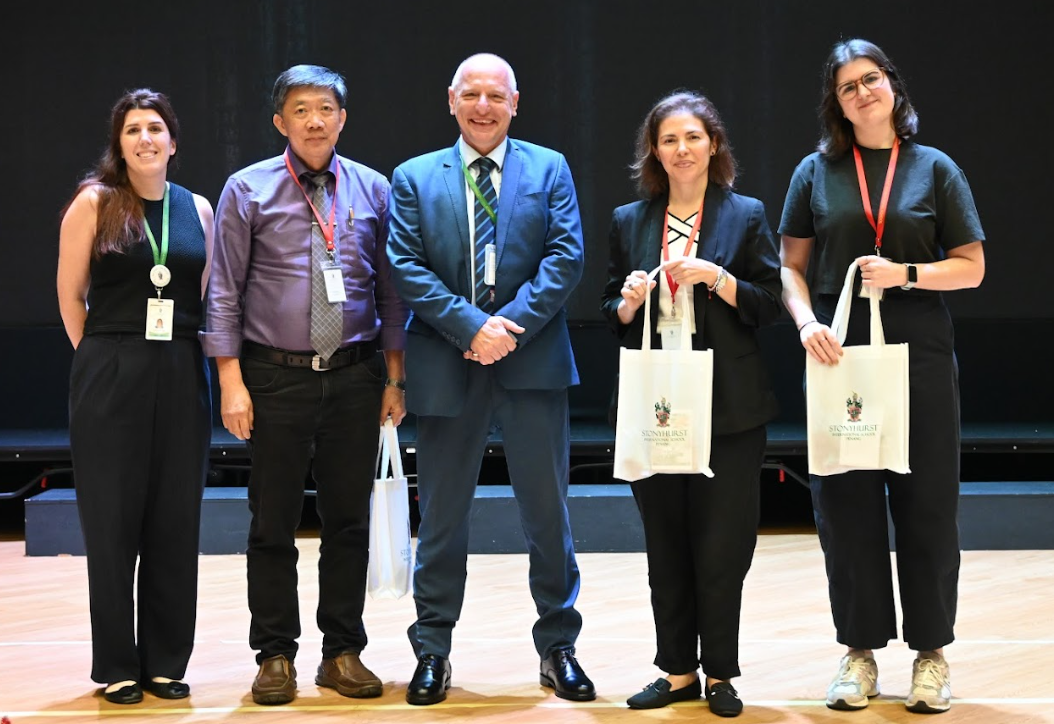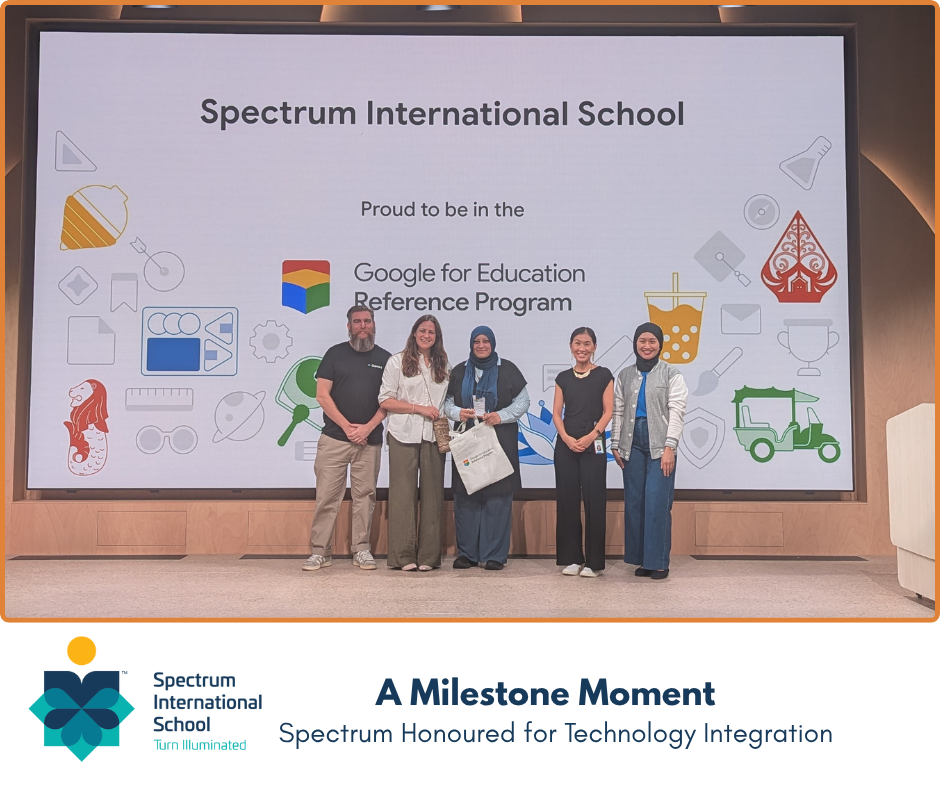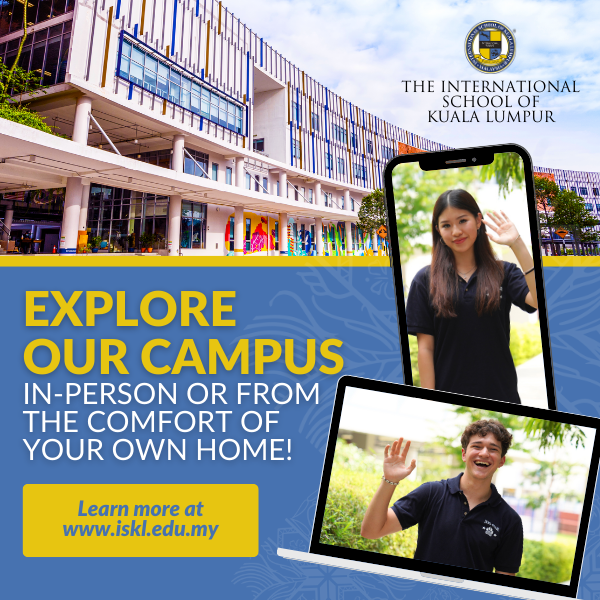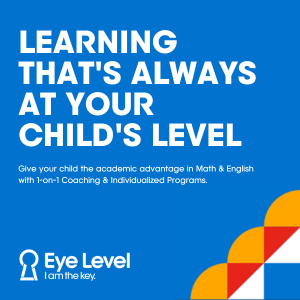Education Destination Malaysia had the privilege of sitting down with Dr Jessica Hale, Secondary Principal of Oasis International School - Kuala Lumpur (OIS). In this insightful interview, Dr Hale delved into the core principles and practices of this school, shedding light on how OIS combines academic rigour and holistic learning to provide a well-rounded education for its students.

Academic Rigour
Academic rigour, as defined by Dr Hale, is a commitment to pushing students to develop both essential skills and knowledge to ensure their success not only during their time at the school but also in the world beyond.
When asked about the benefits of academic rigour, Dr Hale said that it fosters grit and resilience in students, preparing them to tackle challenges with skill, confidence and determination. It instils the capacity to thrive in an ever-evolving world. She noted that this approach is based on popular research by Angela Duckworth about the value of grit and the importance of teaching students/young people that it’s good for them to be able to do hard things.
Academic rigour is understood and applied in different ways in different schools. At OIS, academic rigour is emphasised through equipping students not only with knowledge but also the skills and mindset needed to succeed in various fields in their academic and personal life. It helps students understand that it’s perfectly acceptable to make mistakes, and guides them in identifying and comprehending the valuable lessons that can be learned from mistakes and how to utilise them to improve.
Academic rigour at OIS is incorporated through various methods including Socratic seminars, student presentations and participation in programs such as the Advanced Placement (AP) Program.

Holistic Learning
Holistic learning at OIS encompasses opportunities for students to explore their interests beyond the prescribed curriculum. It includes participation in clubs, service learning, leadership opportunities and character development. Dr Hale shared an example of how at the end of each day, students have 40 minutes to engage in an enrichment period where they can join club activities and apply what they have learned in class to real-world scenarios. Additionally, the school also organises a few field trips throughout the school year around the Klang Valley and beyond.
Dr Hale added that holistic learning involves applying some of the knowledge learned in school and finding ways to interest students in articulating and exploring subjects outside of the classroom. Holistic learning enables students to make real-world connections, develop leadership skills and apply knowledge acquired in the classroom to address challenges in the world outside. It promotes character development and a sense of making a positive impact on the community.

Measuring the Effectiveness of Rigorous Academic and Holistic Learning
At OIS, effectiveness is monitored through a combination of quantitative and qualitative methods. These encompass a range of assessments from standardised tests and ongoing academic performance to reports on discipline and student involvement in extracurricular activities. These measures collectively provide a comprehensive picture of each student’s learning outcome.
However, Dr Hale has acknowledged that measuring the effectiveness of holistic learning and academic rigour isn’t without its challenges. It demands a delicate balance between intrinsic and extrinsic motivation, taking into account the diverse learning styles and needs of students. Teachers at OIS continuously strive to adapt their strategies to meet the unique requirements of each student.

Academic Rigour and Holistic Learning in Preparing Students for The Future
When asked about why academic rigour and holistic learning are equally important, Dr Hale said that balancing academic rigour with holistic learning is crucial because it ensures that students are not only academically qualified but also well-rounded individuals. Without holistic learning, students may lack the practical skills and character development needed to succeed in the real world. Conversely, without academic rigour, they may not have the knowledge foundation to excel in their chosen fields.
OIS leaves no stone unturned when it comes to preparing students for an uncertain future. With a range of experiences, including elective courses, student-led clubs and interactions with professionals, students gain a taste of the diverse possibilities that lie ahead.
In high school, OIS operates on a credit system, offering students a diverse range of subjects to accumulate credits towards their US diploma. According to Dr Hale, middle school serves as a critical period for students to acquire the skills needed for success in high school. Therefore, the school has a dedicated team of counsellors that guide students for high school and university.
Additionally, the school prepares students for an evolving job market by offering enrichment opportunities, electives, career fairs and exposure to experts. Students learn to explore and adapt to a changing world by engaging in real-world experiences and problem-solving.

Student Support at OISKL
When asked about mental health, Dr Hale noted that the school adopts the CASEL (Collaborative for Academic, Social, and Emotional Learning) standards, which emphasise social and emotional well-being from kindergarten through 12th grade. This is integrated into various aspects of school life, including assemblies and hub time for middle and high school students. Through these sessions, students explore topics like self-awareness and self-control, thus enhancing their social and emotional competencies.
To further bolster support, OIS has a referral system in place, enabling teachers or students to seek assistance from the pastoral care team when necessary. Moreover, the school offers external resources for parents to access should more intensive support be required.
In addition to mental health support, OIS is also committed to providing support for non-native English speakers through the English Language Learning Program (ELL) which is designed to accommodate students with varying English proficiency levels and the English Immersion Program (EIP) for students who have only a minimal understanding in English.
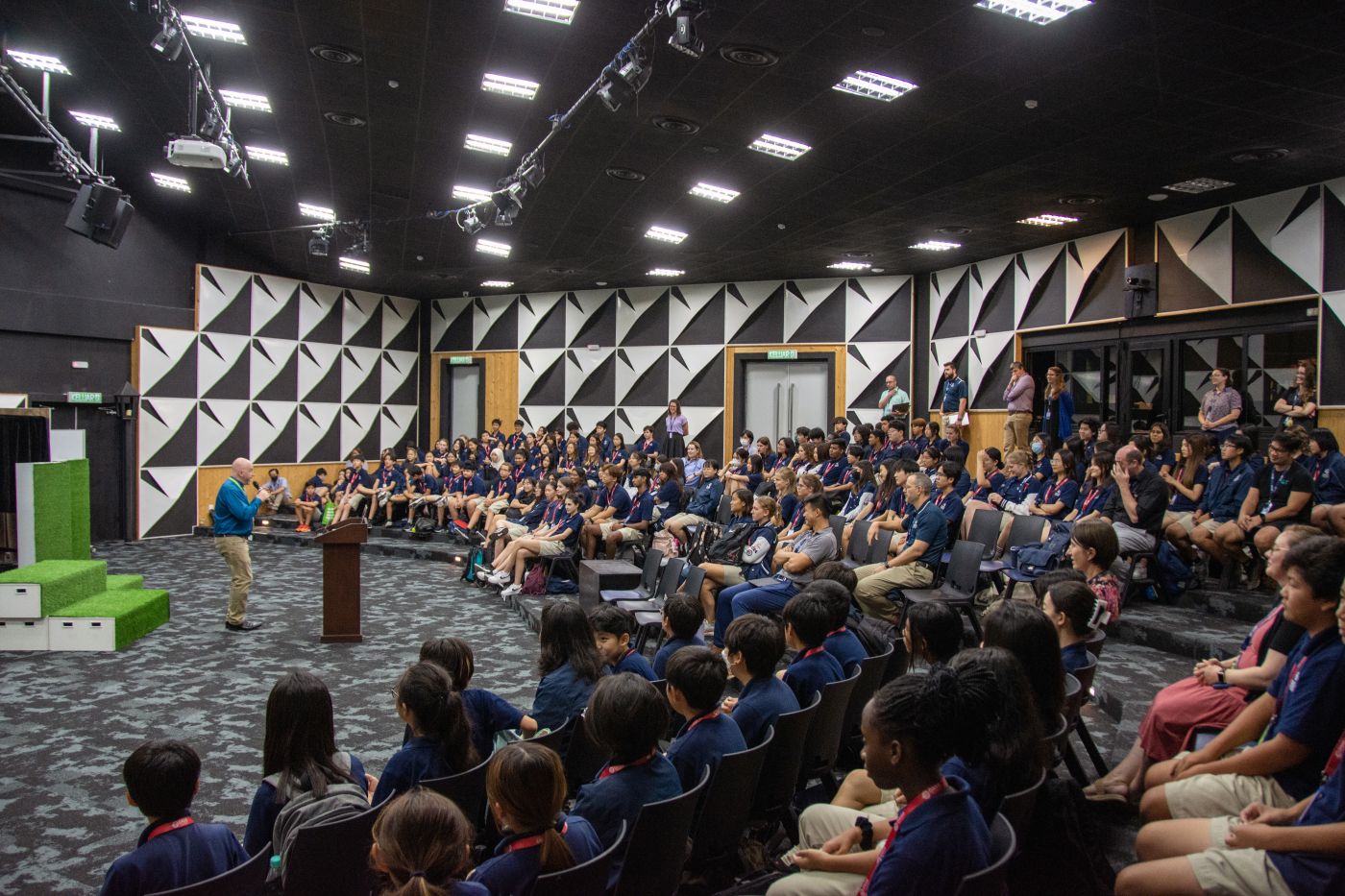
Advice for Parents Seeking an International Education
In the final section, Dr Hale offered advice to parents seeking an international education. She suggested that parents should seek a school that aligns with their educational values and goals and the needs of their children. She also emphasised the importance of partnership between educators and parents, where both parties share common objectives and values. This partnership, according to Dr Hale, contributes greatly to a child’s success and well-rounded development.













![[elc International School] NO SHORTCUTS: WHY THINKING STILL MATTERS](https://mint-edm.sgp1.digitaloceanspaces.com/production/XTvbqZxxQQxUHjyDcClxCortA5SxNs.png)


